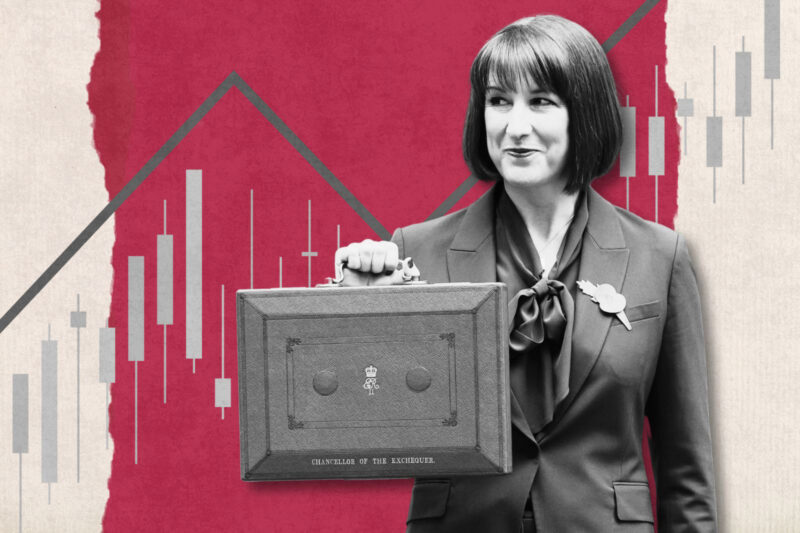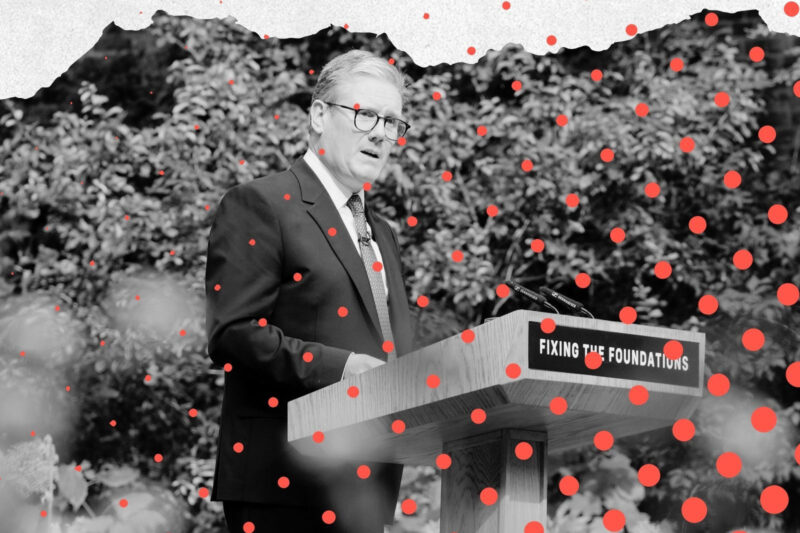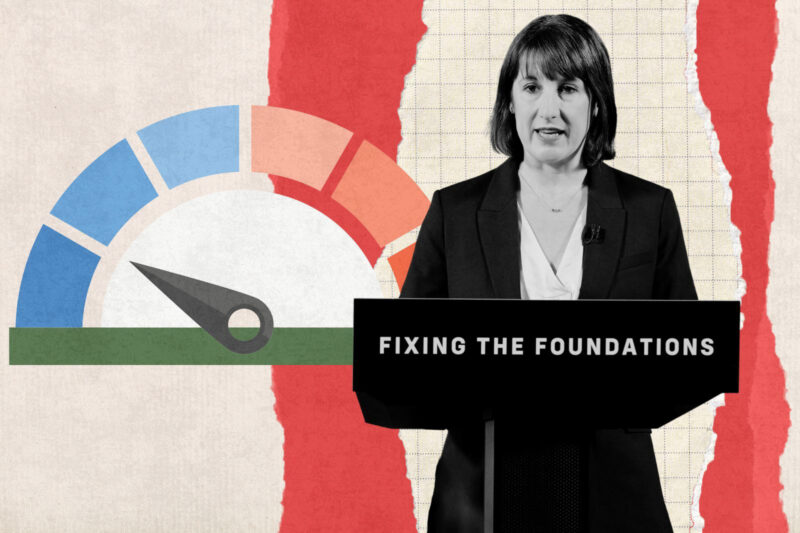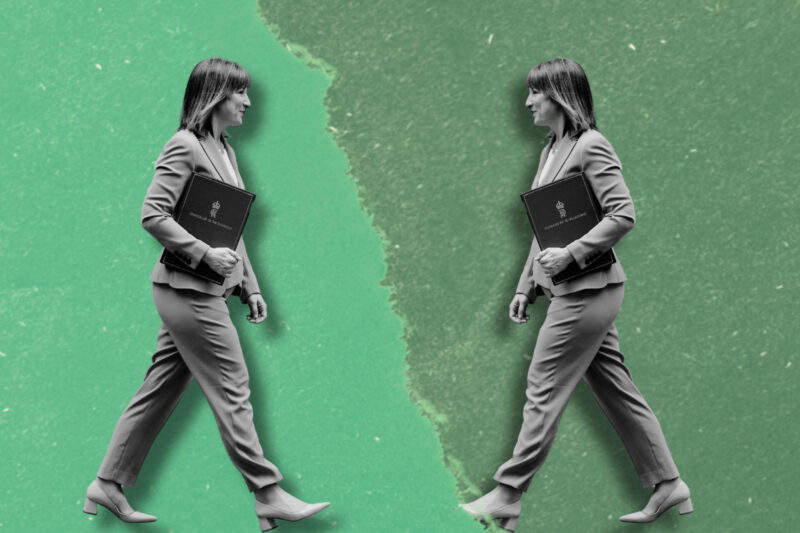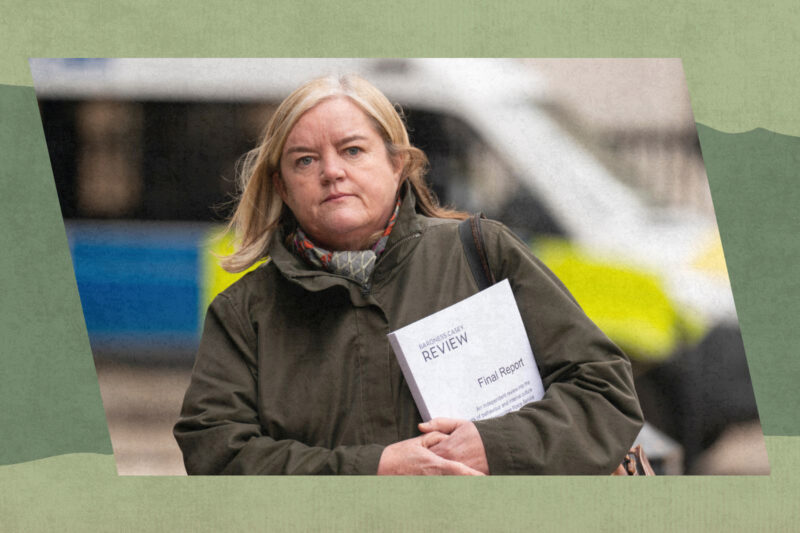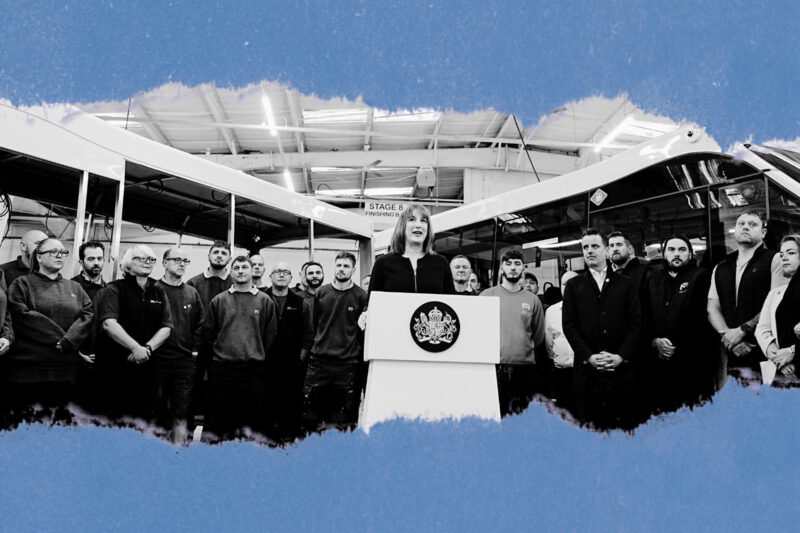Labour’s first budget hits and misses for working people
Will Rachel Reeves’s tax and spending plans be bold enough to make a difference to voters desperate for change?
–

“Ask yourself this: are you and your family better off than you were 13 years ago?” That was the question Rachel Reeves posed to an audience while visiting an east London factory in January 2023. The then shadow chancellor was deploying a famous rhetorical tactic widely first attributed to Ronald Reagan in the 1980 US presidential election but, more than 40 years later, her words landed perfectly.
Eighteen months later, a British public exhausted by 14 years of Conservative austerity, the longest period of wage stagnation since the Napoleonic wars, deep cuts to health and public services, a revolving cast of prime ministers and a mini-budget that sparked a catastrophic cost of living crisis voted Labour in to government.
On Wednesday, Reeves delivered her party’s first budget in nearly 15 years. “Invest, invest, invest,” was her mantra. Repeating the need to plug the £22bn black hole in public finances allegedly left by Rishi Sunak’s Tory government, she began by announcing a programme of tax hikes that aim to raise £40bn.
The stated measures include increases to employers’ national insurance contributions, stamp duty on second homes, a 50% rise in the rate of air passenger duty for private jets and the scrapping of VAT exemption on private school fees. To ease the fears of small businesses, the employment allowance will be raised from £5,000 to £10,500, meaning that 865,000 employers will not pay any national insurance next year, while more than a million will pay the same or less than they did previously.
There is much to celebrate about the plans outlined by the UK’s first female chancellor of the exchequer. First, the Labour government has adjusted self-imposed fiscal rules that previously restricted investment. That approach gives the NHS a much-needed boost, with Reeves announcing a £22.6bn increase in the day-to-day health budget.
Money has also been set aside to rebuild schools and hospitals and Labour has confirmed its intention to increase borrowing in order to invest in transport and infrastructure. Additionally, £5bn will be put into housing and the amount allocated to free school breakfast clubs will triple to £30m by 2025-26.
In the run up to Reeves’s speech there was a great deal of media and political clamour about the prospect of significant tax rises. Predictably, far less noise was made about the amount of spending required to address the mounting problems faced by many UK residents.
It may seem like an obvious thing to say, but you cannot complain about crumbling public services and infrastructure if you object to raising the money needed to fix and maintain them. The fact that Reeves, a politician who has often taken positions of fiscal conservatism, has recognised the status quo as untenable points to just how bad things are. Her abandonment of the Tory tax-and-spend policies that have got us into this mess is both the right move and a welcome change.
But this budget also missed many opportunities. Reeves could have gone much further when it comes to raising revenue. Labour’s changes to capital gains tax will raise £2.5bn, but equalising it with income tax could have raised £14bn.
As outlined in my pre-budget column, Reeves could also have increased tax revenue without affecting most working people by exploring land, wealth and alterations to inheritance taxes.
While fuel duty has been frozen, the bus fare cap has gone up by 50%, which inevitably hits low-income passengers hardest. For commuters who take a bus twice a day, five times a week, this ill-conceived policy could add up to more than £500 a year. The government will generate minimal savings from increased fares. According to the Campaign for Better Transport, updating fuel duty could fund the bus fare cap 10 times over. If we are to tackle the escalating climate crisis effectively, we should make public transport more affordable and accessible.
Perhaps Labour’s biggest budget failing is its approach to child poverty. The budget may have put more money in the pockets of low-income workers by raising the national minimum wage by 6.7% to £12.21 an hour from April 2025, but there was precious little else to counteract its previous decision to keep the two-child limit on Universal Credit, introduced in 2017, in place. One charity estimated earlier this month that, as a result of the cap, at least 10,000 had been pushed into poverty since Keir Starmer became prime minister.
Leading charities estimate that abolishing the two-child limit could take an estimated 300,000 children out of poverty and that doing so remains the most cost-effective measure to address the problem. Putting aside the moral argument, child poverty has long-term detrimental effects for the economy. The Child Poverty Action Group estimates that it has a total societal cost of £39bn a year — a figure that is set to rise in coming years.
The lifting of nearly a million children out of poverty was a legacy of the last Labour government, under both Tony Blair and Gordon Brown. It could be a defining achievement of this one, too, but the longer the punitive two-child limit remains in place, the less recognition it will get, should it eventually choose to take effective action. While increases in spending on services and infrastructure will be welcomed by many, the poorest in society also need and deserve better lives. This government still has a long way to go before that becomes a reality.
This budget demonstrates that it is possible to do things differently. Discredited Tory tax-and-spend plans can be abandoned and self-imposed fiscal straitjackets that limit investment can be lifted. Politics is ultimately about choices. Labour has made a number of good ones this week and some bad.
Shiny new school buildings won’t address teacher pay, the retention and recruitment crisis among those who do go into the profession, or kids starting their days with empty stomachs. Long-term capital investment does not provide answers to the immediate material concerns of working-class people, such as putting food on the table and heating their homes. Will vulnerable pensioners, low-paid workers and kids growing up in poverty feel any better off after this budget? Reeves’s Reagan-inspired question might well come back to haunt her.
 Newsletter
Newsletter

